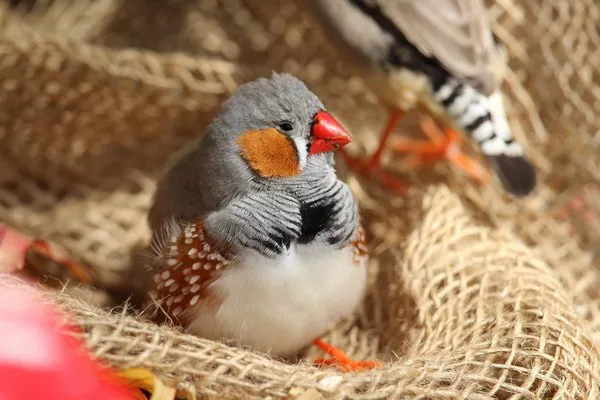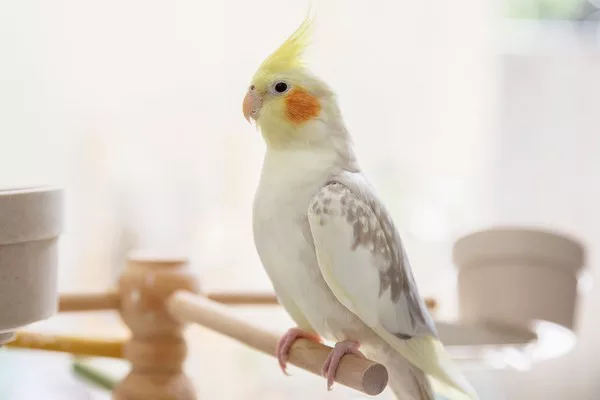Bearded dragons, also known as Pogona Vitticeps, are popular reptile pets, cherished for their unique personalities and relatively low-maintenance care requirements. While they may not express happiness in the same way a dog wags its tail or a cat purrs, bearded dragons can indeed experience contentment and well-being. As a responsible pet owner, it’s crucial to understand and recognize signs of happiness in your scaly companion. In this comprehensive guide, we will explore the 10 key indicators of a happy bearded dragon, helping you foster a thriving and joyful reptile companion.
1. Active and Alert Behavior
One of the most obvious ways to tell if a bearded dragon is happy is through its behavior. A happy bearded dragon will be active and alert.
When they are content, they are more likely to explore their enclosure, hunt for insects, or bask in their basking spot. You may notice them moving around with purpose, and their head held high, surveying their surroundings. In contrast, a stressed or unhappy bearded dragon may hide, stay lethargic, or display aggressive behaviors. Therefore, observing their general activity level is a great initial indicator of their happiness.
2. Relaxed Body Language
A content bearded dragon will exhibit relaxed body language. You can often tell if a bearded dragon is happy by looking at its posture and movements. When they are comfortable and content, they will have a relaxed, slightly rounded body shape. They won’t appear stiff or tense.
Furthermore, their beard, a flap of skin under their chin, will be flat against their throat, not puffed up, which can be a sign of stress or agitation.
3. Enjoying Basking and Soaking
Bearded dragons are cold-blooded reptiles that rely on external heat sources to regulate their body temperature. A happy bearded dragon will actively use its basking spot to warm up. You’ll often find them stretched out under the heat lamp or on a warm rock, absorbing the rays. Additionally, they may enjoy soaking in a shallow water dish if they’re feeling content. Basking and soaking are essential behaviors that indicate a happy and healthy bearded dragon.
4. Healthy Appetite
One of the key indicators of a happy bearded dragon is a healthy appetite. They are opportunistic omnivores, and a content bearded dragon will eagerly eat a variety of foods. They will readily consume their staple diet of insects, such as crickets or mealworms, as well as leafy greens and vegetables. An unhappy bearded dragon may show a loss of appetite or selective eating, which can be indicative of stress or underlying health issues.
5. Comfortable Handling
A bearded dragon’s response to handling is a valuable indicator of their emotional state. A happy bearded dragon will tolerate, and even enjoy, being handled by their owner. They won’t display aggressive behaviors, such as puffing up their beard, hissing, or trying to escape. Instead, they will remain calm, possibly even seeking out your touch. Regular, gentle handling can contribute to a bearded dragon’s overall happiness and socialization.
6. Social Interaction
Bearded dragons may not be as overtly social as some other pets, but they can develop a bond with their owners. How to tell if a bearded dragon is happy can include their interactions with you. A content bearded dragon may respond positively to your presence, often showing recognition and interest when you approach their enclosure.
They may even enjoy watching you or other activities in the room, which suggests they are content with their environment.
7. Clear and Bright Eyes
The eyes are often described as windows to the soul, and in the case of bearded dragons, they can reveal a lot about their well-being. Happy bearded dragons typically have clear, bright eyes. They should be alert and responsive to their surroundings. Cloudy, dull, or half-closed eyes can indicate illness or distress, and should not be mistaken for happiness.
8. Comfortable Habitat
A well-maintained and appropriately designed habitat is essential for a bearded dragon’s happiness. How to tell if a bearded dragon is happy includes evaluating the cleanliness and functionality of their enclosure.
A clean and spacious habitat with the right temperature gradient, UVB lighting, hiding spots, and proper substrate is vital. A happy bearded dragon will utilize these elements effectively, moving between the warm basking area and cooler zones as needed.
9. Shedding Regularly and Easily
Bearded dragons periodically shed their skin to accommodate their growth. A happy and healthy bearded dragon will shed their skin regularly and with ease. Proper humidity levels and hydration are essential for smooth shedding. If your bearded dragon experiences difficulty shedding or has incomplete sheds, it can be an indicator of underlying issues, potentially related to stress or nutrition.
10. Vocalizations and Body Language
While bearded dragons aren’t known for being vocally expressive like birds or mammals, they do have their ways of communicating. Pay attention to their body language and any vocalizations they may make.
Happy bearded dragons may produce a soft, contented chirping or purring sound. Additionally, they may perform slow head-bobbing displays, especially when they are feeling social and content. Observing these subtle cues can offer insights into your bearded dragon’s emotional state.
In conclusion, understanding how to tell if a bearded dragon is happy is crucial for their well-being. These fascinating reptiles, with their unique behaviors and personalities, can thrive in captivity when provided with proper care and a stimulating environment. By paying attention to their behavior, body language, and overall health, you can ensure that your bearded dragon lives a happy and fulfilling life as your beloved pet.
Remember that each bearded dragon is an individual, and what makes one happy may vary from another. Regular observation and care will help you tailor their environment and experiences to ensure their happiness and contentment.
Here are some FAQs about how to make a bearded dragon happy:
1. What is the importance of providing a clean habitat for my bearded dragon’s happiness?
A clean habitat is crucial for a bearded dragon’s happiness because it prevents the buildup of harmful bacteria and maintains a comfortable living environment. Regular cleaning and substrate changes ensure their enclosure remains a stress-free and hygienic space.
2. How can I make my bearded dragon feel safe and secure?
To make your bearded dragon feel safe and secure, provide hiding spots in their enclosure, maintain a consistent daily routine, and avoid sudden loud noises or disturbances. Bearded dragons thrive when they have a sense of predictability and security in their surroundings.
3. Can bearded dragons become stressed or unhappy from too much handling?
Bearded dragons can become stressed if they are overhandled or handled roughly. It’s important to strike a balance. While they can enjoy gentle handling and interaction, excessive handling or mishandling can lead to stress and anxiety. Pay attention to your dragon’s cues to determine their comfort level with handling.
4. How do I provide the right temperature and lighting for my bearded dragon’s happiness?
To provide the right temperature and lighting, set up a basking area with a heat lamp to create a temperature gradient in their enclosure. Additionally, use UVB lighting to support their calcium metabolism. Proper temperature and lighting conditions are crucial for a bearded dragon’s overall well-being and happiness.
Remember that each bearded dragon is unique, and it’s essential to pay close attention to your pet’s individual needs and preferences to ensure their happiness and well-being.
Related Topics:
How old do bearded dragons live to?
Choosing the Right Substrate for Your Bearded Dragon: A Comprehensive Guide
What is a Good Temperature for a Bearded Dragon?

























